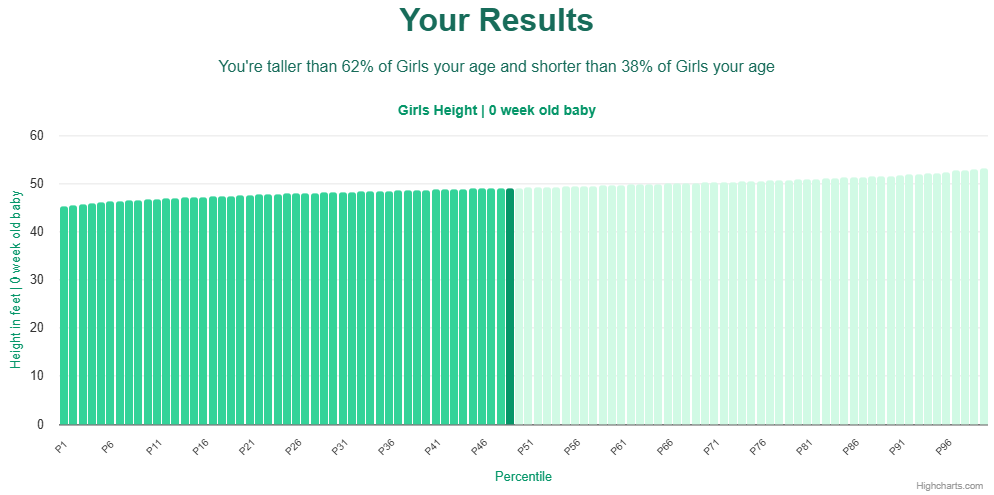Girls Weight chart in kgs for babies 0 week old baby

General Summary: 0 week old baby girls weight
In most cases, weight measurements for 0 week old baby girls will be in the range between 2 and 4 kgs. The average weight for 0 week old baby girls is 3 kgs, according to the CDC and anonymized data from users.
All Results
Enter your weight measurements above to see how they compare
So far, we have recorded [0] weight measurements for 0-week-old-baby girls on LifeMeasure!
(chart updates daily)
See more ages